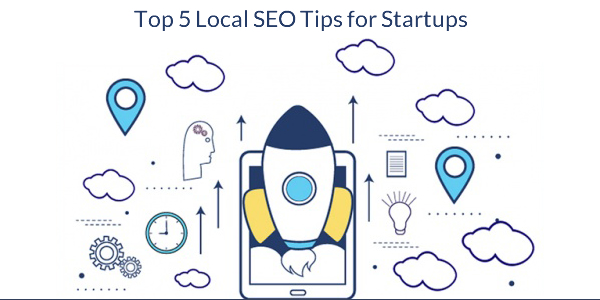Google data from 2016 shows that 50% of queries for local places of business make a trip to that store within 24 hours of the search.
Many startups are run on a shoestring budget. This is especially true in this day and age of cookie cutter templates allowing amateurs to hang out an online shingle. However, as the above statistic indicates, local SEO strategy can be well-worth the monetary investment.
Here are five tips to make sure you get local SEO right for your startup:
1. Register Your Business in Google Places
Google Places is especially vital for startup operations with a physical location. It stands to reason: you want to be registered as a legitimate place of business on the search engine on which potential customers are searching for you. This added layer of legitimacy helps your page increase relevancy and rank in local and non-local results. However, the buoyancy in SEO rankings will be especially noticeable for local results.
To optimize your Google Place account, be sure to include the following attributes:
- Geo-specific keywords
- Title, H1, H2, meta tags
- “About Us” section with local terms
- Include a menu if you offer food
- Include photos of goods sold
- “Contact Us” page with local terms
- Phone number, address, email address of business and relevant customer service/salespeople contacts
Be sure to list all addresses if you have more than one storefront. Doing so will ensure that you appear in the local results for each location
Likewise, be sure to fill out a profile on Bing Local and Yahoo Local.
2. Ask Your Fans for Reviews
If you have not done so already, reach out to those customers who have loved your products or services. Ask them to leave a positive review on the most visible, third-party review pages. Some examples include Google (available after completing your Google Places account), Facebook (your company’s page), and Yelp. Also consider respected industry-specific ranking sites, such as clutch.co for technology companies, or Angie’s List for services.
Offer customers an incentive, discount, or promo code for leaving a review on any or all of these outlets. It won’t cost you money upfront, and may even incentivize them to give you more business in exchange for encouraging others to patronize you, as well.
3. Evaluate Your Social Media Footprint
Social media platforms are your company’s way of personifying the brand. Facebook, Twitter, Instagram, and tumblr are all common outlets companies use to stay connected with and relevant to their users and customers. Good social media creates real bonds between the brand and customers. Engage with users and it will leave a lasting impression. Make sure it’s a positive one by asking for feedback, resolving customer service issues, and offering fun, fresh content to determine social media ROI. Giveaways tend to also be well-received, and are a tried-and-true method for gaining followers.
4. Create Geo-Specific Landing Pages
If you are a brick-and-mortar shop with multiple locations, consider creating multiple landing pages. Each would focus on location-specific keywords, and each storefront would have its own landing page reflecting the location. If you are an online-only shop, consider doing this in markets you are interested in gaining or maintaining a foothold in. For example, if you want to focus on growing your Chicago marketshare, create a Chicago-specific landing page. Chicago users who search for the product or service you provide (with the added “near me” in the Google search bar) will be directed to your Chicago landing page. This tip is a simple one with rippling effects that can vastly improve your organic local traffic over time.
5. Utilize Local External Links
Capitalize on strategic partnerships. This is especially important for eCommerce shops that lack a brick-and-mortar location. Identify your main markets (or target markets), and reach out to prominent businesses in those areas. They need not be direct competitors – in fact, they should not be; tangentially related partners are best. For example, a college memorabilia site might consider partnering with the ticket sales offices at the colleges from which they sell merchandise. By linking to this partner site, a symbiotic relationship can develop. You benefit from the inclusion of location-specific university links because they help your eCommerce shop rank in local SEO results. And anytime someone is shopping for college gifts, they are reminded of the upcoming sports season at their favorite college. The direct links to the schools ticket counter brings in additional, convenient business for these sports programs. It’s a win-win.
Make the most of these five tips to watch your local SEO campaigns take off with minimal monetary expenditure. Good luck, and don’t hesitate to get in touch with questions or comments.








